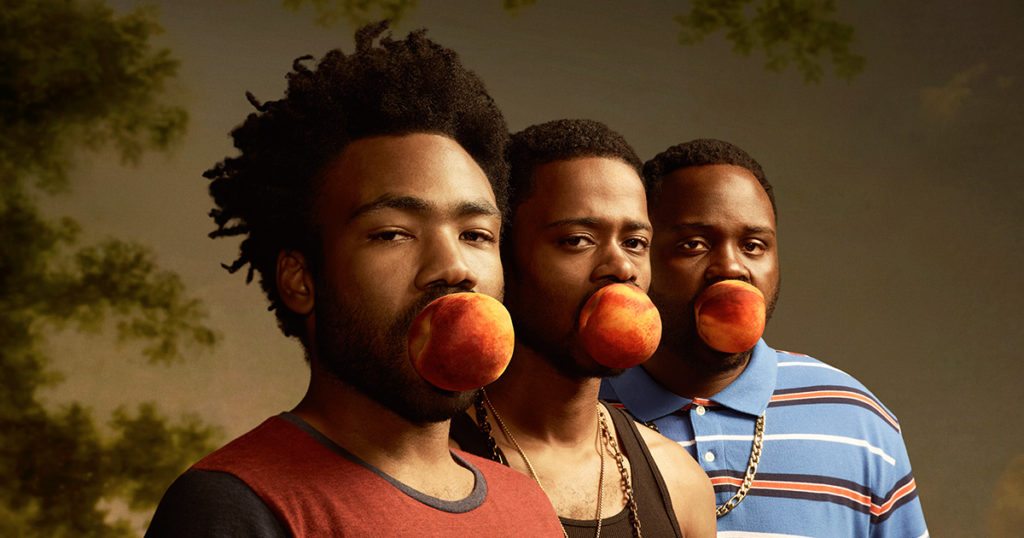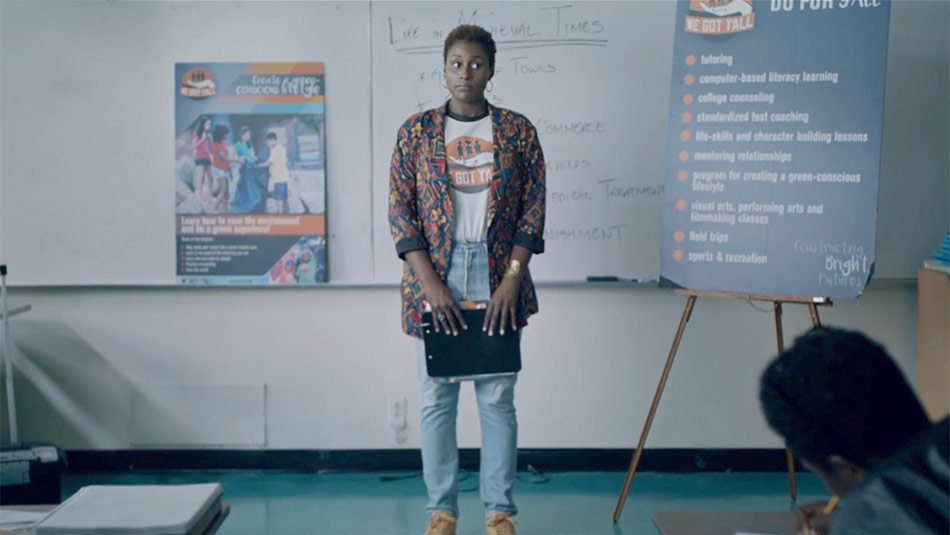When I grew up, black narratives that resonated with me came in the form of classics like Sister, Sister and Moesha. As I got older, I couldn’t find examples of black narratives that were relatable to my experience. I wasn’t asking for the exact same experience, but something that I could relate to.
I was what you called a “black outsider.” In my definition, just purely my own (all other opinions may vary), I was the type of person who didn’t necessarily fit in with the “norm” of what being “black” was. I didn’t listen to the same music. I didn’t talk the same way. I didn’t act how I was “supposed” to act. To a lot of people, I just didn’t act their standard definition of what being black was. It was always a constant and absolutely ridiculous struggle to deal with, but it made me realize what was missing in a lot of television from then to now.
Today, there are many different shows that focus on black narratives. They give us characters and storylines that are kind of relatable, but not all the way. Take the shows of Shonda Rhimes and Tyler Perry. They’ve produced and created imaginative stories that very much work as sitcoms and dramas and films; however, they don’t really give the perspective of real people living outside the cinematic realm, and so it’s very hard to relate to them.
That’s what I’ve found missing in shows about the “black experience.” The relatability that you may find in those storylines and characters is missing. There’s so many good shows for African Americans, now, like Luke Cage, Scandal, etc., but there haven’t been any that focus on what it’s really like to be a black outsider. Shows like Luke Cage and Scandal focus on current affairs and politics that must and need to be talked about, but what about the everyday issues that African Americans have to go through? What about their insecurities, mental health, joblessness, having to deal with people, marriage, and more?
Insecure and Atlanta are two recent shows that I have personally found hit home for me. They shine a light on the black outsider, the everyday experience of being African American. It’s refreshing to have these type of stories, because no one lives in the dramatic realm of shows like The Have or Have Nots or Queen Sugar. Insecure and Atlanta are outside of that and present a great perspective on what it means to be different. That’s not to say they don’t have their crushing moments, but they’re realistic and poignant and so worthwhile and relatable.
Now, I’m not saying that both of those shows are absolutely perfect, because they have their moments, but they are the best examples of current shows that have what we need for young people of color. Especially people of color who are just starting out in careers, trying to figure out what they’re going to do next, or even just people who want to figure all of this shit out. They’re two sides of the same coin, telling stories that we absolutely need to hear.
First, take Insecure. It focuses on Issa (Issa Rae) and her best friend Molly (Yvonne Orji) who try to look for some quick fixes for their internal issues by finding external things to fix some them. Insecure captures what it’s like to be a young, black woman in America. It’s almost like the anti-Girls. Insecure shines light on a lot of issues that black women face that aren’t regularly talked about. For example, issues such as, insecurities within relationships, the fear of not getting married, insecurities about jobs and their place within them, and what to do with the people around you who think you have all the answers because you’re a person of color. The one thing that really caught my eye from this series was Molly and Issa’s equal struggles, triumphs, and downfalls within their jobs. They have very different jobs. Molly is a lawyer, and Issa works with an organization meant to help children in urban areas.
The very first episode really shows the difference between them and how they’re treated in their jobs. Issa is the only black woman working with the organization. She is highly respected, but is also doubted by her coworkers. Issa is well aware of this, knowing what they’re doing and says they have “secret white emails” and “secret white meetings” behind her back, but she’s expected to know the answers to their problems when it comes to the kids. However, when she does offer answers, they doubt her every step of the way, thinking their idea is better. It’s a very slight conundrum that she’s faced with, but she hardens herself to work harder at a job she’s already good at.
Molly is a different story. Molly’s worked with white coworkers all her life, and according to Issa, “White people LOVEEEEEEE Molly.” Molly works in an environment where she is one of the many few African Americans, so she conducts herself as such. In recent episodes, a new intern comes on the scene, and she’s the opposite of Molly. She’s loud, abrasive, and (what people would call, I guess) “ghetto” while Molly is conservative, quiet, and reserved. Her boss asks her to teach this new intern to be more like her, and I think we all know what that means.
Molly and Issa’s experiences tell you so much about what it’s really like to be black at work. They either look at you for all the answers or you need to fit in just to stay alive. It’s a reality that I’ve lived.
While Insecure focuses on female experiences, you have the other side of the coin with Atlanta, that deals with male (and to some extend female) experiences. While Insecure focuses on personal and workplace drama, Atlanta presents a couple of social issues and keeps raising the stakes. It’s amazing to watch Atlanta get smarter with every episode.
Atlanta turns its attention to a group of young African Americans living in Atlanta. Earn (Donald Glover) is an up and coming manager of his cousin and rapper Alfred “Paper Boi” (Brian Tyree Henry), and with his cousin’s friend and absolute cutie-pie and innovator Darius (Keith Stanfield), they do their best to make some money and get into the rap game so they can all live well. Earn is also trying to make a better life for his daughter with his baby’s mother and sometime girlfriend Vanessa (Zazie Beetz). There’s nothing like this show on television, and Donald Glover deserves so much praise for bringing it to life. The show is a semi-autobiographical portrait of Glover’s life in Atlanta, and it gets crazier and cooler every episode.
An episode that caught my attention, and even if you don’t end up liking the show you should just watch it, is episode two “Streets on Lock.” A little background: after figuring out his cousin is a rapper, Earn tries to find a way manage him and get back into his good graces. Earn buys his cousin’s way onto a local radio station. But when he, Alfred and Darius are hanging out one night, a fight escalates into something much more serious–a shooting. So, “Streets on Lock” comes in the aftermath of this shooting. Alfred and Earn are in jail and wait to get processed. After Alfred goes free, the experience in the jail waiting room is something that Earn might never forget. I highly praise this episode for a number of reasons, mainly it’s openness in talking about three very important issues surrounding the black community. This episode deals with transphobia, police brutality, and mental health issues in jail.
When one of the prisoners in jail with Earn talks to his ex-girlfriend in the jail, he is confronted by a couple of other men who are quick to point out that his ex-girlfriend is “actually a man.” He denies this, confused about why they would make the statement, but he says, “That’s why she’s in jail with the men.” He starts to get upset at this, going over reasons why he’s not gay. He pinpoints Glover’s character Earn to take his frustrations out on, but Earn delivers one of the most quiet and sincere sentences I think I’ve ever heard to make him calm down. He says, “Sexuality is a spectrum. You can really do whatever you want.” He’s not judging him, he’s not even in the situation, but he’s honest and sincere. Atlanta is honest with it’s depictions good, bad, or indifferent. Glover tries to show a side of the city that we never see on TV.
It was so hard growing up and trying to find characters (good or bad) that reflected what I was going through. They were all either heavily stereotyped into something that was beyond offensive or they just didn’t resonate to the person I was starting to become. I already told you I was a black outsider, but here’s a larger scope, I was always told I “acted white,” I “sounded white,” and that I do a lot of things that most people don’t consider “black.” I learned to accept myself along the way, but realized that it was going to be (and continues to be) an uphill struggle, especially having to adult as a young black woman. That’s why these shows are really cool, very smart, and ridiculously important. They have characters who deal with some of the struggles of being “too black” or “not black enough.” They bring out racial bias full force so that everyone sees it.
We’ve had so many glamorous and dramatic black characters and show. Atlanta and Insecure give us something a little more down to earth; they have balanced that fine line of comedy with a dose of reality that we all need. They for me, as a black outsider, who was always being told that I wasn’t “black enough,” and for a lot of young black men and women who, like me, have been told the same thing. They’re shows for the outsider, encouraging them to be themselves as they figure it out, telling them that “it’s okay if you don’t have your shit together, because neither do I.” That’s very comforting to know.





Thanks for sharing your perspective. I enjoyed reading this article.